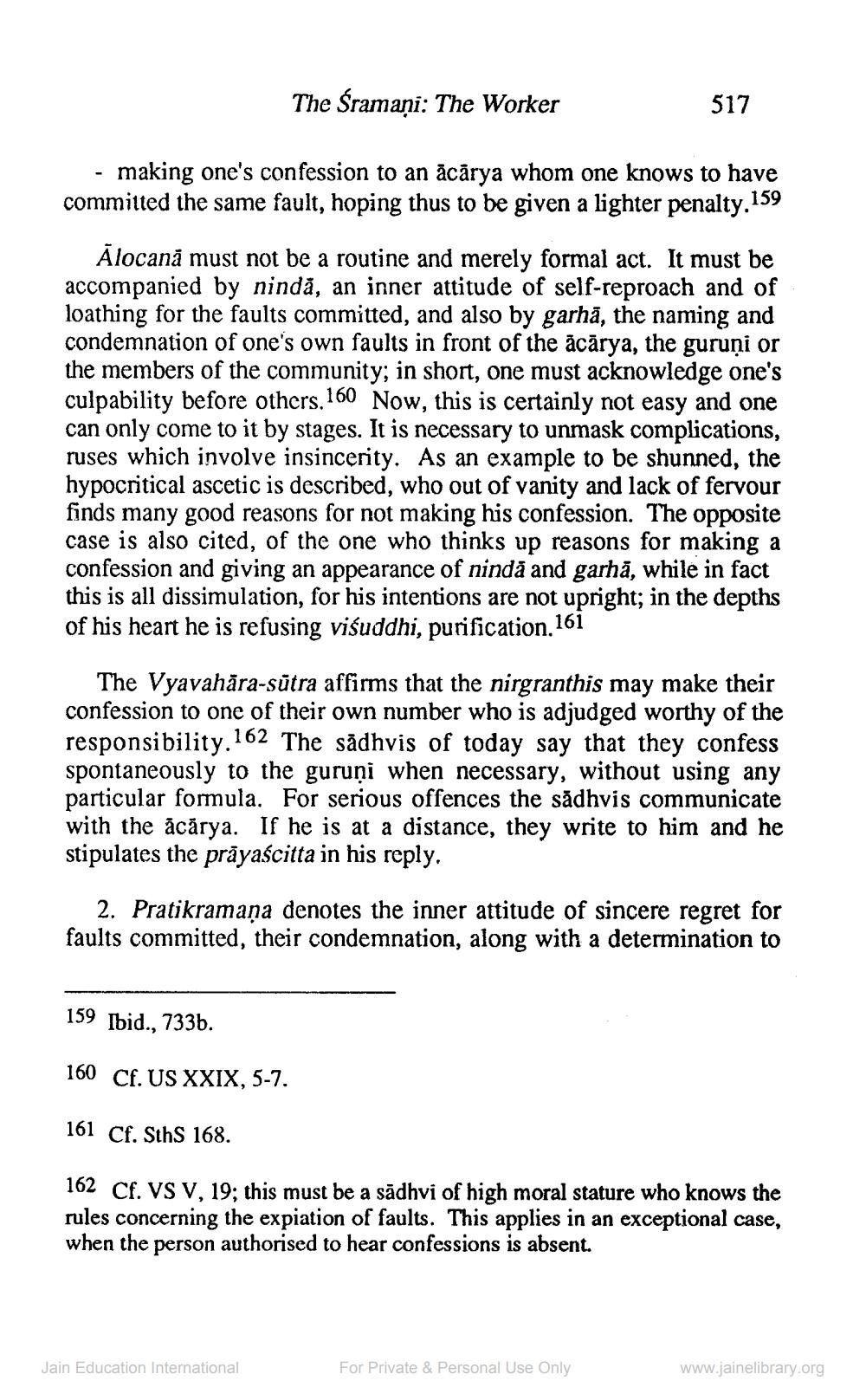________________
The Sramaņi: The Worker
517
- making one's confession to an ācārya whom one knows to have committed the same fault, hoping thus to be given a lighter penalty.159
Alocană must not be a routine and merely formal act. It must be accompanied by nindă, an inner attitude of self-reproach and of loathing for the faults committed, and also by garhā, the naming and condemnation of one's own faults in front of the acārya, the guruņi or the members of the community; in short, one must acknowledge one's culpability before others. 160 Now, this is certainly not easy and one can only come to it by stages. It is necessary to unmask complications, ruses which involve insincerity. As an example to be shunned, the hypocritical ascetic is described, who out of vanity and lack of fervour finds many good reasons for not making his confession. The opposite case is also cited, of the one who thinks up reasons for making a confession and giving an appearance of nindă and garhā, while in fact this is all dissimulation, for his intentions are not upright; in the depths of his heart he is refusing viếuddhi, purification.161
The Vyavahāra-sútra affirms that the nirgranthis may make their confession to one of their own number who is adjudged worthy of the responsibility. 162 The sãdhvis of today say that they confess spontaneously to the guruņi when necessary, without using any particular formula. For serious offences the sădhvis communicate with the ācārya. If he is at a distance, they write to him and he stipulates the prāyaścitta in his reply,
2. Pratikramaņa denotes the inner attitude of sincere regret for faults committed, their condemnation, along with a determination to
159 Ibid., 733b.
160 C. US XXIX, 5-7.
161 Cf. Sths 168.
162 Cf. VS V, 19; this must be a sādhvi of high moral stature who knows the rules concerning the expiation of faults. This applies in an exceptional case, when the person authorised to hear confessions is absent.
Jain Education International
For Private & Personal Use Only
www.jainelibrary.org




